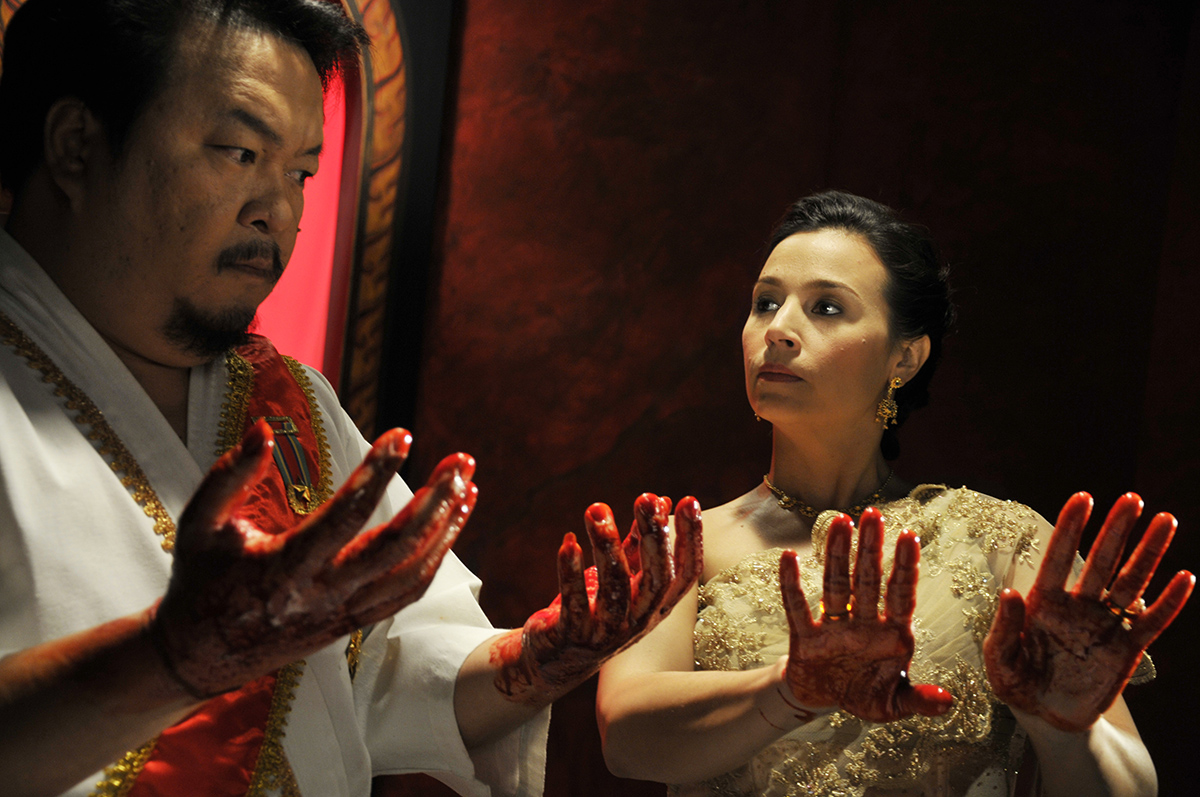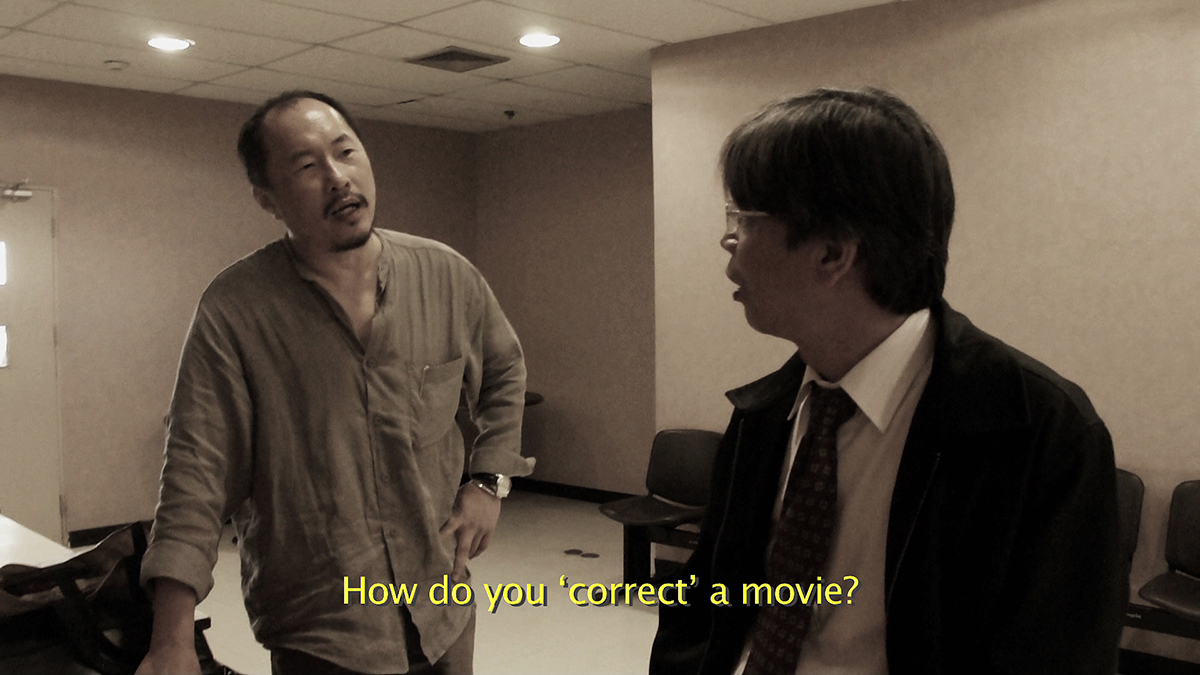Abandoning studies in fine arts to rescue refugees at the Cambodian border because she felt it more important to help her neighbours: the approach of journalist and filmmaker Ing K(anjanavanit) can be summarized in such a step. This decision has the beautiful effect of structuring artistic work from real-life violence, as evidenced by the masterful diptych Shakespeare Must Die (fiction, 2012) and Censor Must Die (documentary, 2013). Ing K had previously created a work of fiction, My Teacher Eats Biscuits (1998, 16mm), that was censored by the ‘democratic’ government, as well as a series of documentaries: Thailand for Sale (1991), Green Menace: The Untold Story of Golf (1993), Casino Cambodia (1994) and Citizen Juling (2008), four films dedicated respectively to the economic, ecological, social and religious problems of her country, Thailand (though she prefers to use what she called its pre-fascist name, Siam).
Ing K first appeared on the international scene in 1999 as leader of a group of environmentalists protesting against the shooting of Twentieth-Century Fox’s production The Beach (Danny Boyle, 2000). The protestors wished firstly to denounce the payment of a considerable sum to the Thai Forest Department for permission to circumvent a law protecting the island of Phi Phi Le, secondly to draw attention to the damage inflicted on this protected natural park’s ecosystem. Determined to embrace every cliché, Fox, as it provides actors with prosthesis and hairpieces, insisted on featuring a hundred palm trees by digging in ancient sanddunes so the island might better play its assigned role as a (so-called) tropical paradise. “These died in a few days and the damaged sanddunes washed away over the coral reefs, turning the most exquisite lagoon into a desert.” When The Beach was released the following year, Ing K and her organization called for a boycott, and staged a mock sacrifice in front of a theater, with the victim wearing a Leonardo DiCaprio mask. “The Beach nightmare was the thing that opened my eyes to what the world was becoming, the way PR works to manipulate the media. As a journalist and documentarian I had helped to win some battles to save the national park law from becoming weakened by encroaching resort developers, but when we lost The Beach battle, we lost the national park war.”
Just as Eisenstein held up the mirror of bloody truth to Stalin with Ivan the Terrible (1945-1958), as a prism for Bangkok’s corrupt and blood-soaked dictatorship, Shakespeare Must Die brilliantly uses Macbeth, translated word for word into Thai by Ing K herself. Although Shakespeare Must Die resembles only itself, its visual inventiveness suggests a marriage between Hans Jürgen Syberberg and Derek Jarman. The immediate banning of the film in Thailand, under the pretext of “a threat to national unity,” caused the fearless Ing K to create a work inspired by her struggles with the authorities to get Shakespeare Must Die released. Thus was born Censors Must Die, a Kafkaesque fresco which shatteringly describes the relationship between a repressive government and its opponents, providing not only a detailed account of the rational and irrational tactics of both sides, but also a great love story for its protagonist, the producer Manit Sriwanichpoom (himself an important contemporary photographer).
Ing K sums up Censor Must Die in this way: “Wherever [Manit] went, amidst political upheaval in a land of fear, a camera followed him, into secret places long hidden from the sun, where witnesses are not welcome. The resulting cinema verite is the living story of a struggle for justice and human dignity, for the fundamental right to freedom of expression, which Thai filmmakers do not have. This is cinematic democracy in action, in all its obscene and heartbreaking details; a dark record of events farcical enough to be enjoyed as a comedy.”
Though still refusing to permit the release of Shakespeare Must Die, on 6 August 2013, the Film & Video Censorship Committee strangely decides Censor Must Die “need not be submitted to the censor,” since the events it describes actually happened: “The film Censor Must Die has content that shows events that happened to Mr Manit Sriwanichpoom, who claims to have been unjustly treated by a state agency; therefore, it is a film that is not required to pass through the censorship process.” Thus a mirror held up before the censorship makes the censor retreat into absurdity, allowing Ing K’s guerilla images to enjoy a surprising victory.
Today, this tireless filmmaker is developing a series of documentaries on the revolutionary events of 2013 in Bangkok. The overall name of this blog – which combines Censor Must Die‘s title with that of William Keighley’s 1939 film Each Dawn I Die (another tale of a journalist fighting corruption) – is a modest tribute to the brio, courage, altruism, erudition and puckish irony which characterize Ing K’s exemplary work.
Nicole Brenez, January 2016
Translation of the French by Brad Stevens

